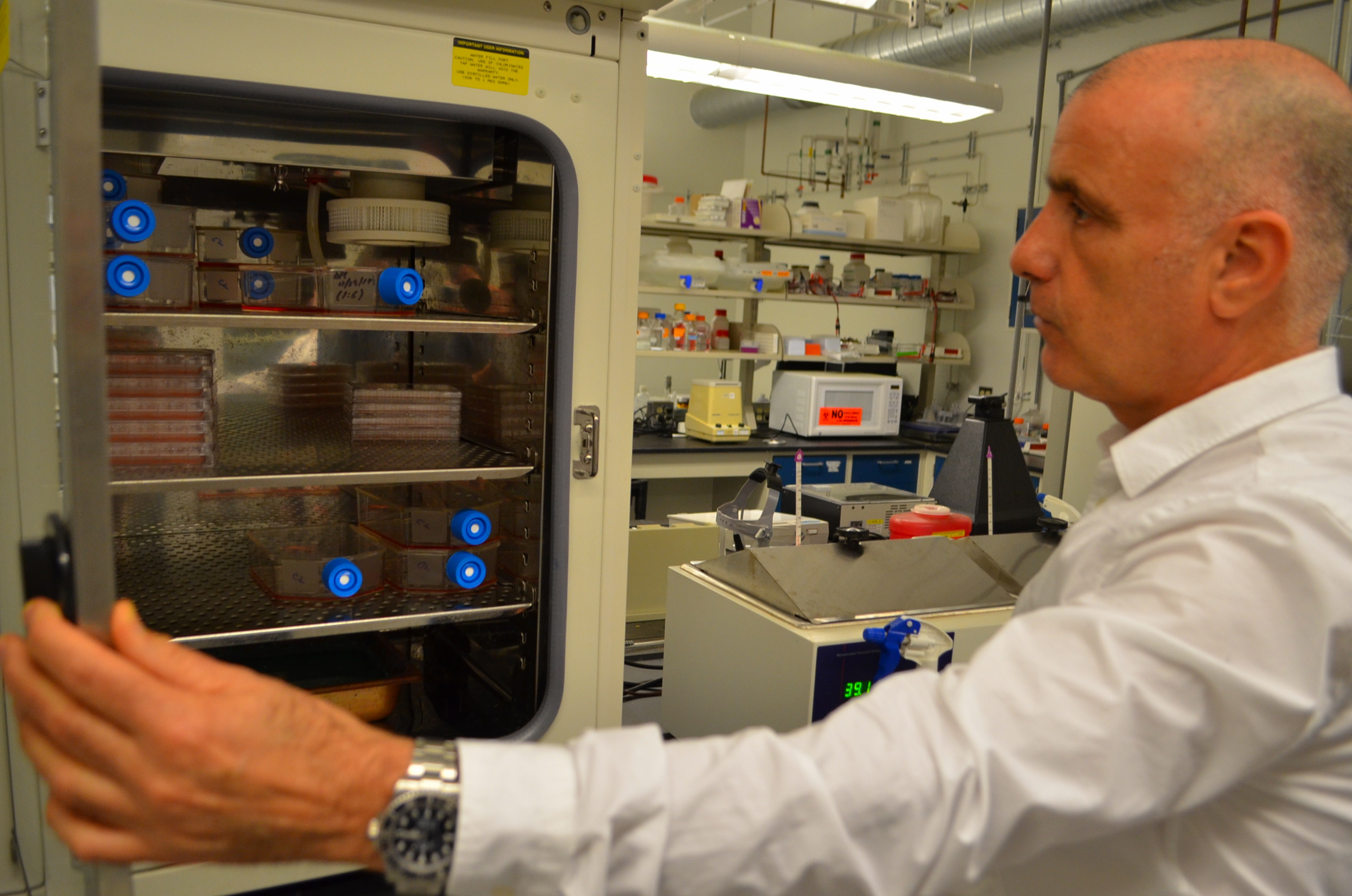The lab at GeoVax, a small biotech company in Smyrna, is loud. It’s outfitted with a complex ventilation system to make sure the viruses that scientists there work with don’t escape.
“[You] have to really make sure that you’re not [letting] anything outside,” said Farshad Guirakhoo, chief scientific officer of GeoVax.
Many of the vaccines made at the lab use the same starting material: a weakened form of a virus similar to smallpox, which can carry genetic information from other viruses.
Once injected, the vaccines produce molecules called virus-like particles. Unlike actual viruses, they’re not infectious, but they still look enough like actual viruses to build the body’s immune response.
“Next time they see the real virus, everything is ready for action and [ready to] get rid of the virus very quickly,” Guirakhoo said.
This kind of technology is called a vaccine platform, and it can be used to develop immunizations for many different viruses.
David Dodd, chief operating officer of GeoVax, said his company has used it to make vaccines for Ebola and HIV.
“Coronavirus, same thing,” Dodd said. “It’s what we refer to at times just to simplify as a ‘plug and play’ platform.”
As in, plug in the genetic information of the virus you want to fight, and you’re good to go.
Chinese scientists published that information for the new coronavirus earlier this year. That means GeoVax can develop it’s vaccine without every bringing samples of the actual virus into their lab.
Other companies are using similar technologies to develop vaccines against COVID-19, the pneumonia-like disease caused by the new coronavirus, some with the support of the federal government.
The U.S. Department of Health and Human Services announced a partnership with drug-maker Sanofi this week to help push along the company’s vaccine.
Dodd, however, thinks GeoVax has an edge: a partnership with a Chinese biotech company called BravoVax. It’s headquartered in Wuhan, the epicenter of the coronavirus outbreak.
“They have established good relationships with the Chinese [Center for Disease Control and Prevention], regulatory authorities and investors,” he said.
Dodd thinks those connections could help get GeoVax’s coronavirus vaccine to market faster. Still, he estimates it won’t be ready for at least two years.
COVID-19 has killed more than 1,800 people and sickened more than 73,000 others, most of them in China since it was first discovered late last year.
U.S. public health officials say the disease is showing no sign of slowing down and could even become seasonal, like the flu.
Dr. Robert Redfield, director of the Centers for Disease Control and Prevention, told CNN last week the new coronavirus is “probably with us beyond this season, beyond this year.”






